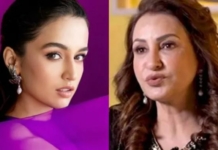Many may believe that it is only recently that Pakistani dramas have started touching upon social issues including those which are tabooed. This is not so. When it comes to a more meticulous probing into Pakistani television productions which have tackled issues usually brushed under the carpet, the name of Mazhar Moin emerges as a significant one.
It also won’t be wrong to say that no other director can be listed along, for Moin is someone who alone has played with themes one cannot think of playing with even for the big screen or web-series in a country like Pakistan, let alone television.

February 1 marked the birthday of this popular director who has mostly worked in collaboration with Faseeh Bari Khan to very subtly weave the sexiest stories ever penned by the latter, and has almost always gotten away, such has been his careful execution.

For the ones who do not know, Mazhar Moin has directed stories for television in the form of telefilms and dramas which have dealt with the themes of snubbed sexual orientations, incestuous relationships and carnal desires by delving deeper into the sexual psychologies of both Pakistani men and women.
An example is ‘Chimgaadar’, a telefilm starring Sanam Baloch which revolved around a woman getting married to a gay man, and getting her sexual desires fulfilled through physical intimacy with her own father-in-law as a result of an estranged relationship with her life partner. The telefilm, at certain points, also talked about unofficial prostitution taking place at large in the alleys of Karachi.
Another bold work of Mazhar Moin written by Faseeh Bari was ‘Behkawa’, a serial that got released almost a decade ago and very creatively executed a lesbian relationship between a principal and her student while discussing several other social issues in a more direct manner. The most famous work of Mazhar Moin has been ‘Quddusi Sahab Ki Bewah’, which to many, may emerge as only a humorous drama serial, but a closer look at the dialogues of the serial, especially those of Badar Khalil, hint at repressed sexual desires which are then partially fulfilled through secret gestures and furtive glances in a conservative society.
Yes, no doubt that the scripts of all these serials have been penned by Faseeh Bari Khan, but Mazhar Moin is to be appreciated for never letting Khan down, and never asking him to make changes, something which writers often do. Mazhar Moin has always taken scripts as they are, and it is with the use of his own intelligence that he has presented them on screen.
Lately, the director has been working on scripts that are the result of PEMRA’s microscopic hold over the drama industry, and has therefore reduced himself to commercial work. If given a chance to properly utilize his creativity, Mazhar Moin can easily come at par with international content creators who are now working on tabooed themes.








